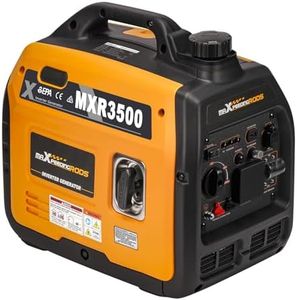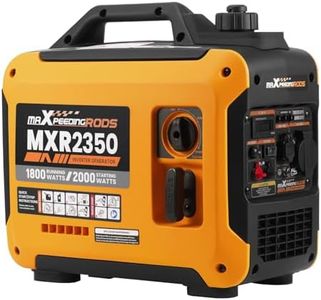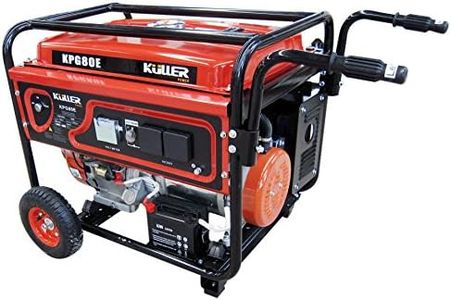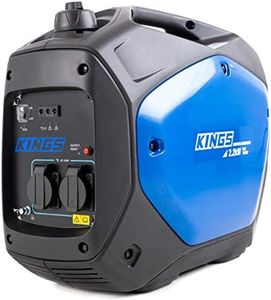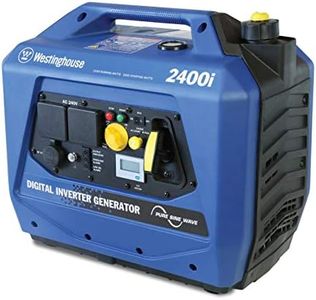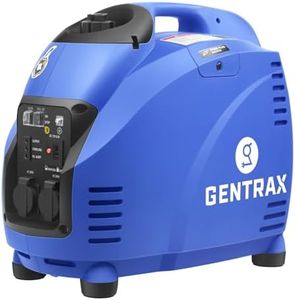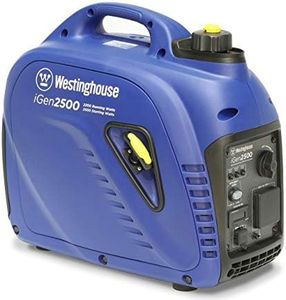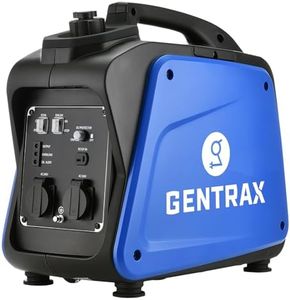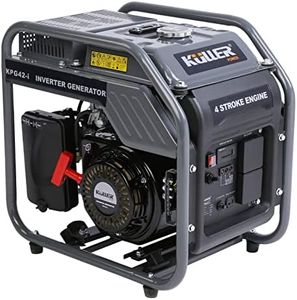We Use CookiesWe use cookies to enhance the security, performance,
functionality and for analytical and promotional activities. By continuing to browse this site you
are agreeing to our privacy policy
10 Best Small Generators
From leading brands and best sellers available on the web.By clicking on a link to a third party's website, log data is shared with that third party.
Buying Guide for the Best Small Generators
When it comes to choosing a small generator, it's important to think first about your main uses—are you planning to power a few essential appliances in a blackout, take it camping, or run tools at a job site? Small generators come in a variety of sizes and features, and the right one for you will depend on what you need to power, how portable you need it to be, and your preferences for things like noise and fuel type. It’s helpful to make a list of devices you plan to use with the generator and check their wattage so you can match your generator’s capacity to your needs.Power Output (Wattage)Power output, measured in watts, tells you how much electricity a generator can provide at once. This is crucial because you need enough wattage to run all the devices you plan to use at the same time. Small generators usually come in the range of 1,000 to 3,500 watts. Under 2,000 watts is good for charging phones, lights, or a laptop—think basic camping needs. From 2,000 to 3,500 watts, you can run items like a refrigerator, a few power tools, or a small air conditioner. To pick the right wattage, add up the starting and running wattage of the items you want to use together and look for a generator that can handle that total.
PortabilityPortability refers to how easy it is to move the generator around. This involves the overall weight, whether it has carrying handles, and if it includes wheels. Lightweight models, under 50 pounds, are easier to take camping or transport often. Heavier models (up to 100 pounds) might be okay for keeping at home but are harder to move. If you plan to transport the generator frequently, look for one with built-in handles and wheels.
Fuel Type and RuntimeSmall generators run on different types of fuel—most commonly gasoline, but some can use propane or even have dual-fuel capabilities. The type of fuel affects convenience, availability, and sometimes storage. Runtime tells you how long the generator will operate on a full tank of fuel at a given load, usually listed in hours. If you expect to use the generator for long periods, a longer runtime is important so you don't have to refuel often. Think about what fuels are easy for you to get and how long you want the generator to run without having to stop for refueling.
Noise LevelGenerators make noise while running, measured in decibels (dB). Lower numbers mean quieter operation. For camping or residential use, a quieter generator (under 60 dB at a reasonable distance) is more comfortable and less likely to disturb others. Louder units are fine if noise isn't a concern, like on a construction site. Consider where you'll use your generator and whether keeping things quiet is important to you.
Outlets and FeaturesThe outlets and special features a generator provides can make a big difference. Look for the types and number of outlets—standard household outlets, USB ports, or even RV plugs—based on what you need to plug in. Some models have helpful features like digital displays, parallel capability (combining two generators for more power), or built-in safety sensors. Match the outlets and features to your plans: for example, camping might call for USB charging, while emergency backup may need a mix of outlets.
